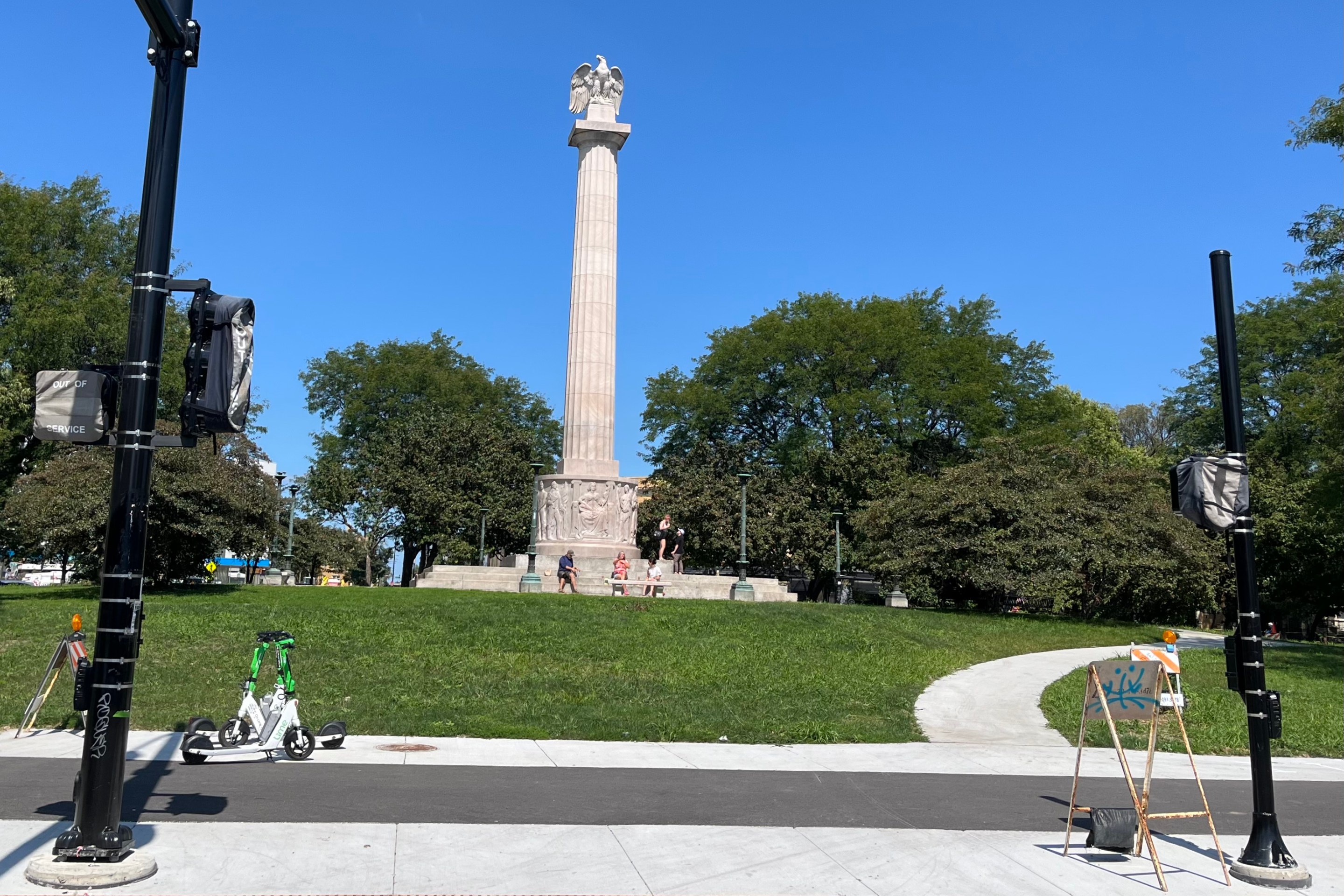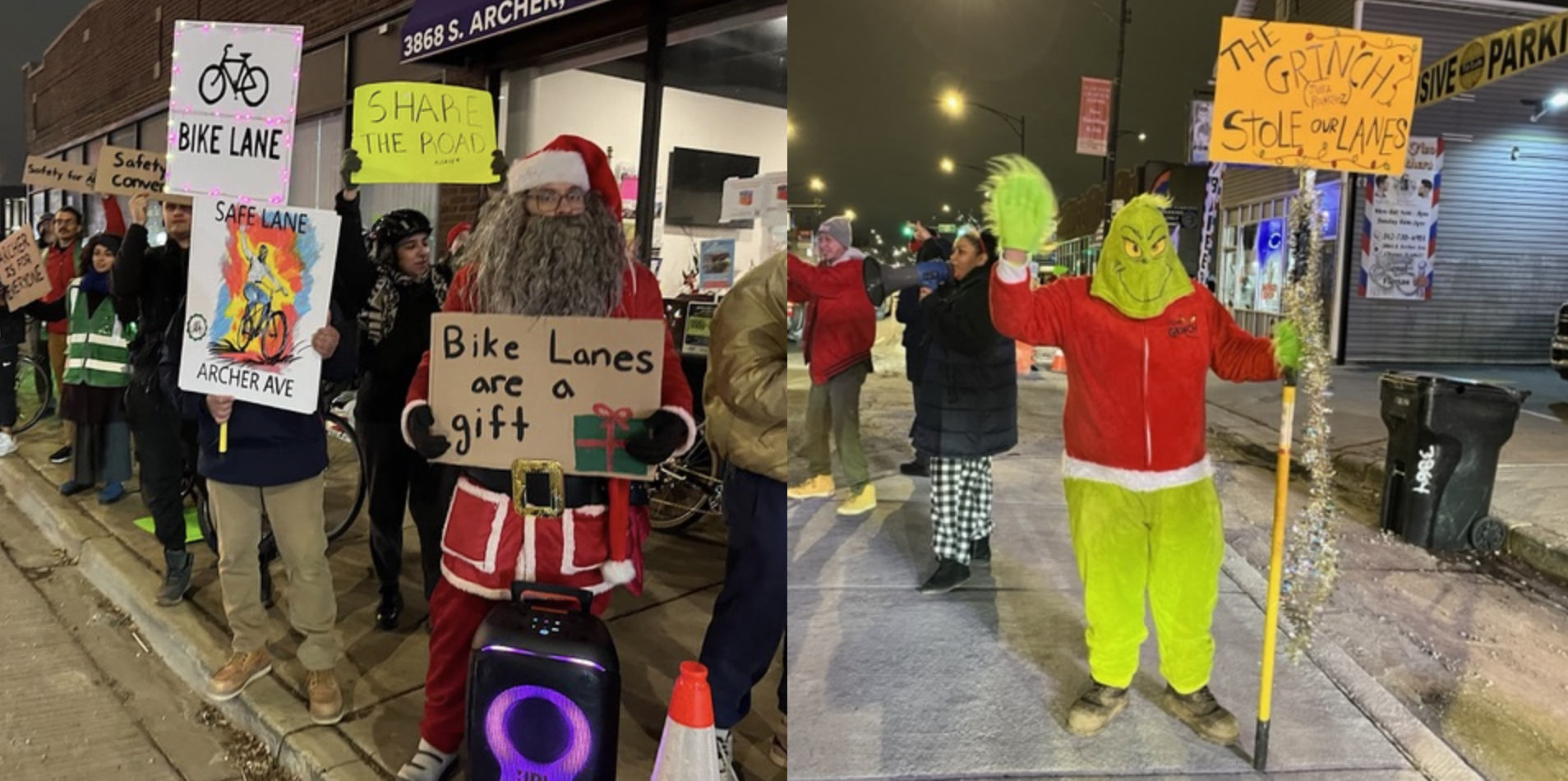Have you ever heard this line from your local transportation officials? "We'd like to redesign this street for safety, but the state won't allow it." Often, that is indeed the truth.

But James Kennedy at Transport Providence says that's still no excuse for city officials to sit on their hands. Local DOTs should directly challenge the retrograde policies imposed by state DOTs that undermine the health of the city, he says:
In many cases, RIDOT has moved slowly towards a less Neanderthal-like perspective on bike and pedestrian infrastructure. RIDOT officially allows cities to "consider" NACTO guidelines for street design instead of AASHTO ones, which opens the door to much better design. "Consider" doesn't mean anything in practice though. Many engineers working on behalf of RIDOT are used to what they're used to, and without forceful changes in policy, the same things continue to be built. The same city official I quoted earlier told me that for one project in his purview, RIDOT engineers arrived to the meeting unaware even of the terms of the debate. "They didn't even know what a protected bike lane was, or a sharrow." RIDOT engineers blocked additional street trees, saying it put them over budget, insisted that pedestrian bump-outs would harm street width, blocked bike lanes of any kind, an ultimately (reluctantly) gave in to sharrows on an arterial street. This is progress, I guess.
The best example I can think of of cities actively thumbing their noses at the authority of states is gay marriage. In many states, gay marriage continues to be illegal, and even more menacingly, in some states it's totally legal to fire people from jobs for being someplace on the queer/gender-queer spectrum. But where we have made progress on changing the culture around gay/bi/trans rights, it has been because activists and local officials took control of the situation and put opponents on the defensive. Before California ever had gay marriage, mayors like Gavin Newsom started officiating weddings with full recognition that they would not be respected by state officials. But this had power. Possession is nine-tenths of the law.
City officials must do the same with transportation.
It is an unacceptable excuse at this point in the game, with the stakes as high as they are, for cities to claim that they have to follow jurisdictional rules about who controls the street. Cities like Providence, Pawtucket, and Central Falls need to say, "We're putting this bike and pedestrian infrastructure in. You try to stop us." The state may very well respond in exactly that way, removing something that the community wants, but that will completely reset the debate. Now the state will have to explain why it is doing such an unacceptably stupid thing that goes against official USDOT policy.
Elsewhere on the Network today: The Political Environment compares the response to road closures caused by protests to those that are a planned part of routine maintenance. Bike Portland reports a group of guerrilla activists installed their own traffic diverter in a local neighborhood last night only to have it removed by early morning. And Biking Toronto shows of the city's handsome new curb-protected bike lane.



